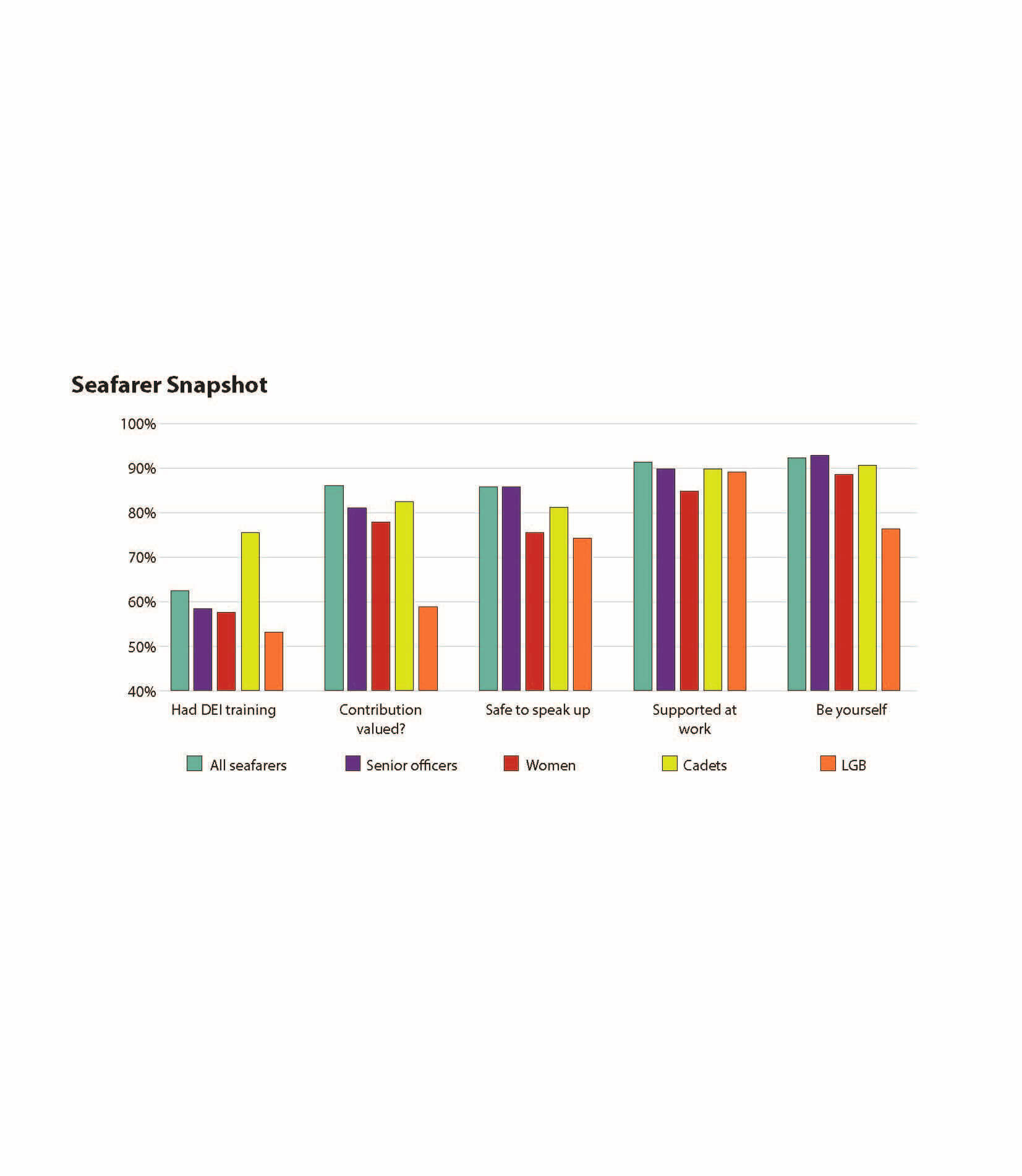Resources
A collection of free resources to help you raise funds and share the work we do

By Carly Fields
A recent survey conducted by DSG, experts in maritime diversity, equity and inclusion (DEI), revealed a complex picture within the seafaring sector. While the majority of seafarers expressed positive feelings about their sense of belonging and confidence in DEI support structures, a significant minority reported experiencing psychological harassment, raising concerns about the industry’s commitment to creating a truly inclusive environment.
Heidi Heseltine, founder and CEO of DSG, shared insights into the survey’s findings with The Sea, emphasising the overall “positive sentiment” among the more than 5,000 seafarers who participated. “When you look at the results, they’re really pretty good results. The positive sentiment was, in many areas, better than we saw for those ashore – that was really encouraging,” she said.
The survey also highlighted some intriguing trends, such as the consistently positive experience reported by catering staff. “One theory is that they are subject to more regular working hours so there’s a bit more consistency,” she said. “Also, they’re their own team on board – a team within a team – and they’re physically together in the same space. So does that give them a more positive experience?” Heseltine said further investigation was needed to understand the factors contributing to these positive experiences and how they can be replicated across other departments.
Harassment worries
However, despite the overall positive sentiment, the survey also uncovered a concerning prevalence of harassment. “Our results came back and said that one in five people across the board are experiencing some kind of psychological harassment and/or bullying,” Heseltine said. Women, who made up only 2.5% of the survey respondents, were disproportionately affected, with half reporting at least one incident of psychological harassment and one in four reporting sexual harassment.
Heseltine stressed the importance of DEI training in addressing these issues. Those that had received DEI training experienced less psychological and sexual harassment. “You can’t argue with that something really good is happening when they’ve had that DEI training,” Heseltine said. However, she cautioned that the training must be high-quality and tailored to the specific cultural context of the maritime industry. “It’s not just log on here and read this. There’s a correct way to do DEI training for enduring impact,” she said. “Our work sees us engage with people from around the world and you have to be mindful that there are huge variations and cultural nuance when it comes to DEI. For example, what one person equates as bullying isn’t going to be what someone else sees. The same with harassment. In different cultures, different things are acceptable.”
Heseltine also highlighted the trend of organisations moving towards a unified culture encompassing both sea and shore operations. “What I think is critical about that is that you’ve got the ‘one overall culture’. Essentially what organisations are saying is that this is the working culture for any employee, ashore or at sea, and to work with us, these are the values and behaviours we expect. This has a positive impact on the level of awareness between the sea and shore touch points. Then you can have people who are better equipped looking out for each other. It doesn’t matter then if you’re crew, or if you’re ashore, if you’re working to the same standards of inclusion and wellbeing.”
Looking ahead, Heseltine believes that the survey data can be a catalyst for positive change in the industry. “The industry has stepped up,” she said. “The companies who have been investing in their people in this way will continue to do good. They’re going to continue to strive to do better.”
But she asked, “what can we do collectively to try and drive change for the ones that still need support, who aren’t benefitting from best practice and often not even good practice?” Here, she noted the increasing trend of contractual arrangements including DEI and culture considerations and organisations actively engaging with crews in ports as steps in the right direction.